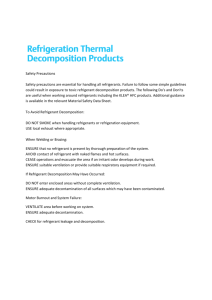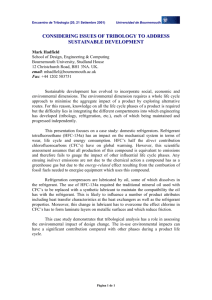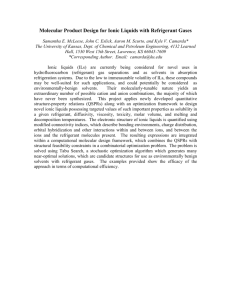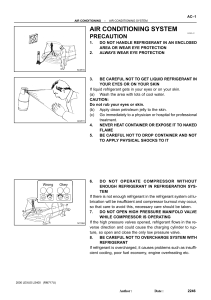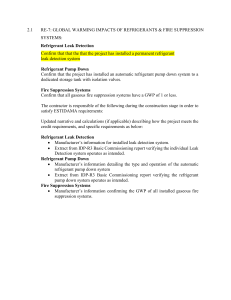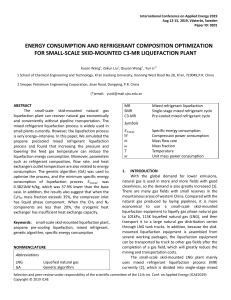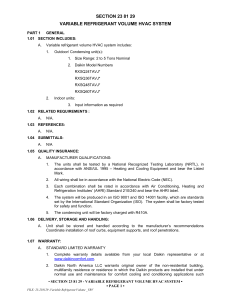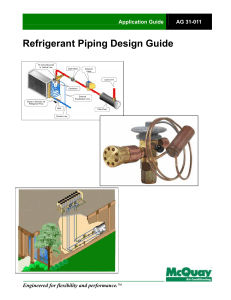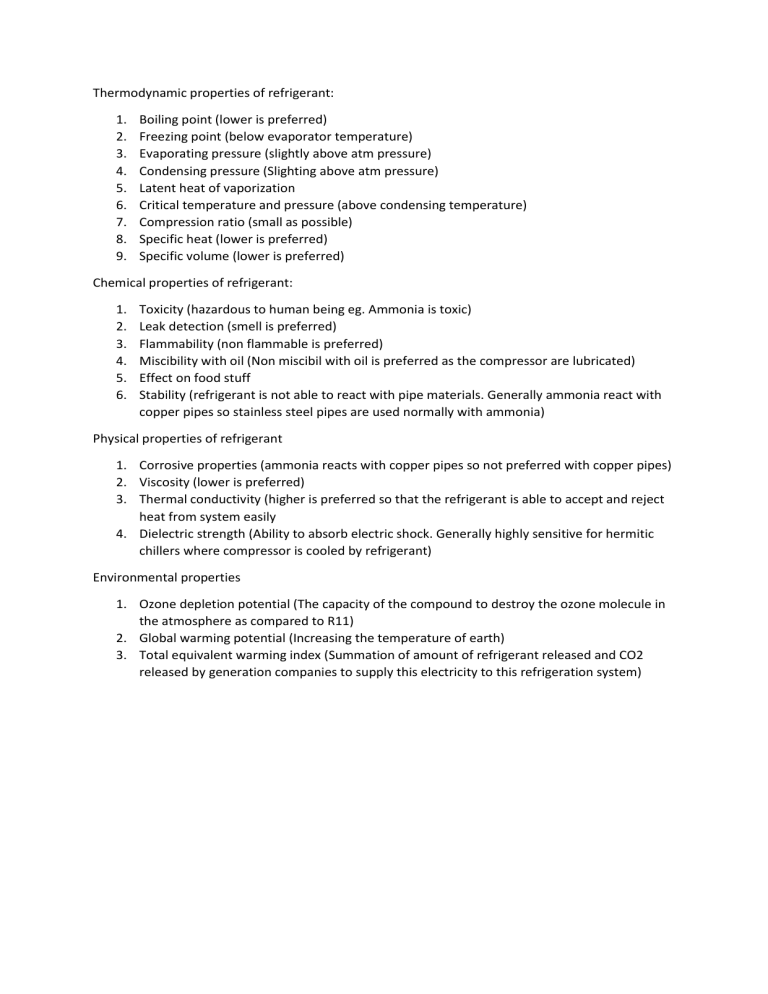
Thermodynamic properties of refrigerant: 1. 2. 3. 4. 5. 6. 7. 8. 9. Boiling point (lower is preferred) Freezing point (below evaporator temperature) Evaporating pressure (slightly above atm pressure) Condensing pressure (Slighting above atm pressure) Latent heat of vaporization Critical temperature and pressure (above condensing temperature) Compression ratio (small as possible) Specific heat (lower is preferred) Specific volume (lower is preferred) Chemical properties of refrigerant: 1. 2. 3. 4. 5. 6. Toxicity (hazardous to human being eg. Ammonia is toxic) Leak detection (smell is preferred) Flammability (non flammable is preferred) Miscibility with oil (Non miscibil with oil is preferred as the compressor are lubricated) Effect on food stuff Stability (refrigerant is not able to react with pipe materials. Generally ammonia react with copper pipes so stainless steel pipes are used normally with ammonia) Physical properties of refrigerant 1. Corrosive properties (ammonia reacts with copper pipes so not preferred with copper pipes) 2. Viscosity (lower is preferred) 3. Thermal conductivity (higher is preferred so that the refrigerant is able to accept and reject heat from system easily 4. Dielectric strength (Ability to absorb electric shock. Generally highly sensitive for hermitic chillers where compressor is cooled by refrigerant) Environmental properties 1. Ozone depletion potential (The capacity of the compound to destroy the ozone molecule in the atmosphere as compared to R11) 2. Global warming potential (Increasing the temperature of earth) 3. Total equivalent warming index (Summation of amount of refrigerant released and CO2 released by generation companies to supply this electricity to this refrigeration system) Classification of refrigerants so far, - - - - CFC – 1st generation (Before year 2000) – Phased out o R-11 o R-12 HCFC – 2nd generation (Before year 2010) – Phased out o R-22 o R-123 HFC – 3rd generation (Before year 2020) o R-134a o R407c o R410a o R404a o R-32 o R452B HFO – 4th generation (ongoing as no other better alternative discovered so far) o R1233yf o R-1233zd(E) o R-1234ze(E) o CO2
